Atrocities on tribals still on, says ex-judge Chandru, the hero of Suriya's 'Jai Bhim' | Interview
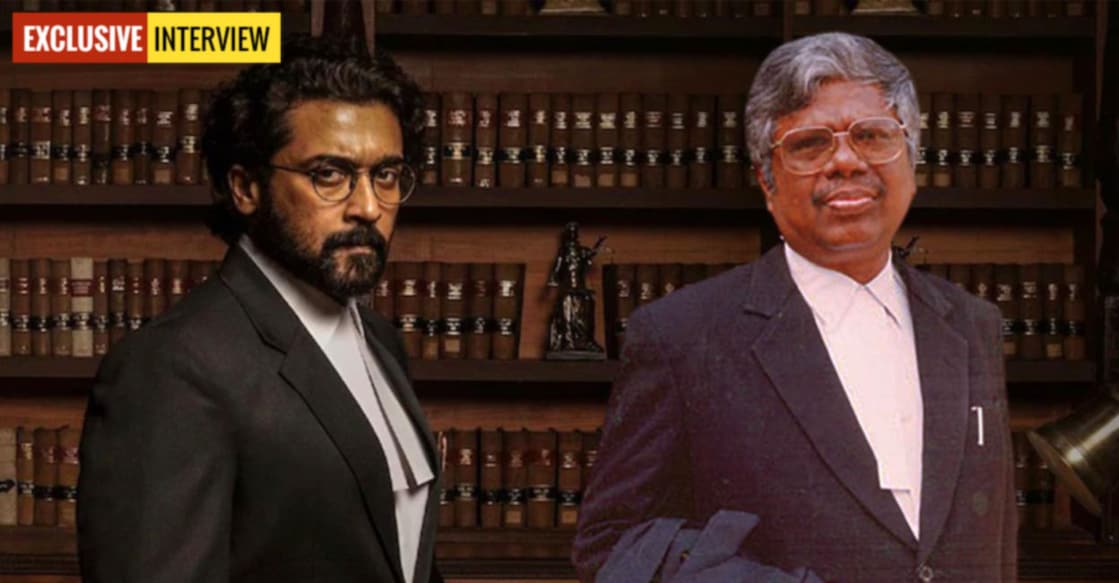
Mail This Article
Unlike many Kollywood movies where heroes take law into their hands, the movie "Jai Bhim" starring actor Suriya has reaffirmed faith in the Constitution of India. The movie depicts the real-life experience of Justice K Chandru, former Judge of the High Court of Madras. The movie, which has already struck a chord with the common man, is based on the true events associated with a legal battle he had taken up early in his career. The movie takes you straight into the dark sides of the casteism and injustice prevailing in Tamil society.
After retiring from judicial service in 2013, Chandru has become very much active in social work. He now finds pleasure in taking lectures in colleges, writing textbooks and sharing his vast experience in the field of law to new generation students.
"Jai Bhim" has brought about a revolution in society, Chandru, now 70, noted.
"After viewing the movie, Chief Minister Stalin started giving help to the tribal community directly without waiting for the routine administrative procedure. The Tamil Nadu police force offered help for a woman who had been tortured by the police itself. The lawyers are now saying that the movie has brought back the dignity of legal profession. Those who were earlier aspiring to become doctors and engineers are now showing interest for a career in law. Five former Director General of Police of the Tamil Nadu, during their private talk, admitted to me that what was shown in the film was real. Two ministers from Kerala called me up to congratulate," a jubilant-looking Chandru said.
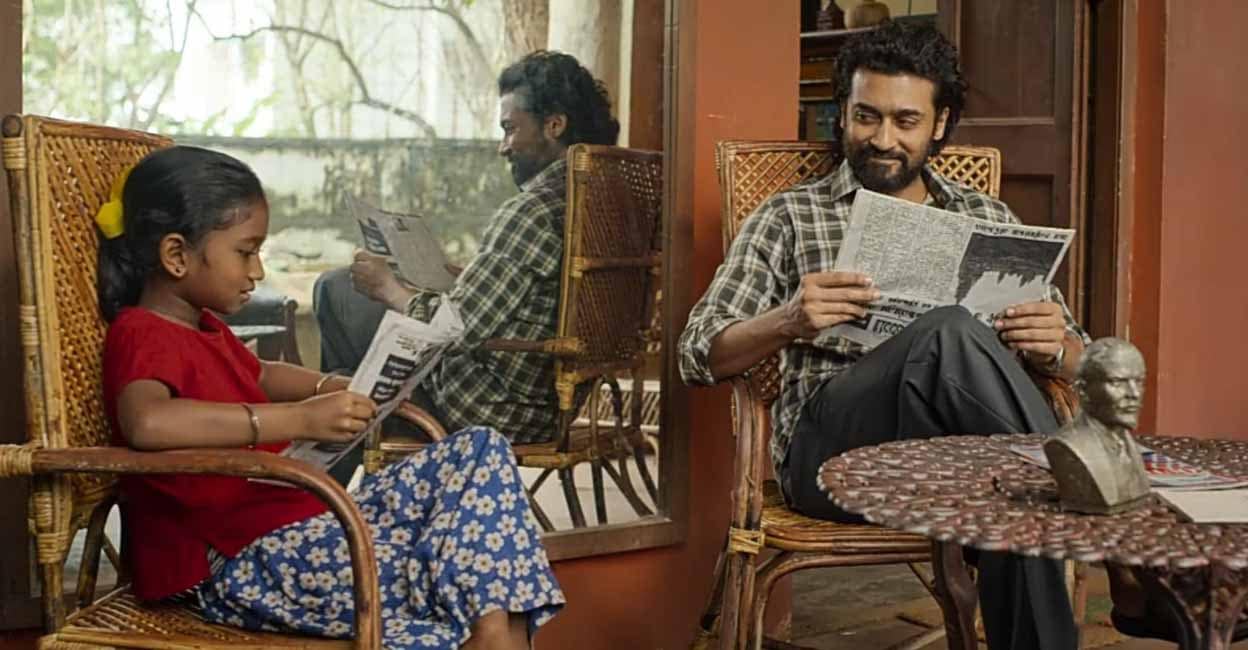
The real-life protagonist, Justice Chandru, played by actor Suriya on the screen, has so much to reveal about the shocking realities of caste discrimination prevalent in society. And, he opens up his mind to Manorama Online.
Did the judiciary or government make any rightful interventions after your fight against human rights violations against the tribal people came to the public realm?
The total number of the tribal people in Tamil Nadu comes to around eight lakh. It constitutes only one percent of the total population of Tamil Nadu. During the 2021-22 financial year, Rs 1,306 crore was kept apart by the government for the welfare of the tribal community. But it is not clear whether all this money will go to their hands. The tribal people face multiple problems. Shelter, employment, caste certificate, free ration, voting rights and police atrocities are some of them. No proper policy framework has been formulated yet to protect the tribal people and to revive their fortunes. It is painful to say that the judiciary stands as a mute witness to the issues faced by the tribals. There are recurring cases where those belonging to the forward castes manage to wrongly usurp the employment opportunities reserved for tribal people by using bogus caste certificates. But even now, no serious steps are taken to end this practice of issuing fake caste certificates and to throw out those who have obtained jobs by fake caste certificates from the service.
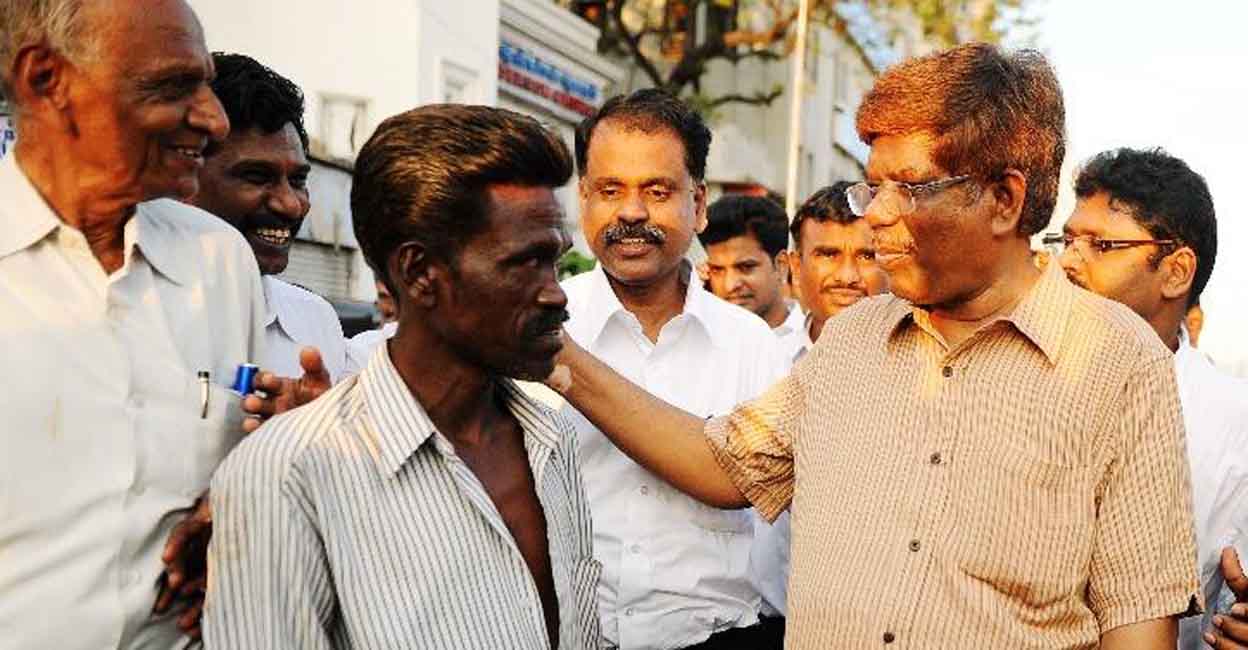
The real incident dealt by Suriya's "Jai Bheem" happened years back in Tamil Nadu. What is the present social status of backward classes there? Have you seen any downward trend in areas of human rights violations and atrocities?
There is no end to atrocities on Adivasis by the state-sponsored agencies. It will continue forever. The incident that was shot in the movie took place in the 1990s. In the last 30 years, the number of such atrocities have doubled. The Adivasis are used as slaves in brick kilns. The Adivasis living in the forests are under the benevolence of the Forest Department and they have no standing of their own. The new forest law would make them homeless. The clauses in the new forest law, once implemented, will deprive Adivasis of the means to eke out a living by doing small-time farming.
You were an advocate when an incident similar to the storyline of the cinema occurred in your real life. Did you handle any such case when you were a judge?
As an advocate I handled almost 20 similar cases. As a judge such I came across double that number. There is no ending to the killings and physical attacks suffered by Adivasis from the uniform-clad police. In the real story, the slain person's wife got an iota of justice after nine months, that too after suffering so much of ordeals, including protracted legal battle and unberable torture.
Do you think that the judiciary in Tamil Nadu is strong enough to put an end to the social evils existing on caste lines?
People are expecting too many things from the judiciary. But it has got its own limitations. Such limitations are especially true while fulfilling the preliminary responsibility of ensuring that executive and legislature do not cross their boundaries. There are many horrible things happening in the day-to-day life of the tribal people. Judiciary can effectively interfere only in individual cases connected to employment, public crematorium, land, ownership and temple worship. Only governments can bring in fundamental changes in our social system in order to put an end to social evils.
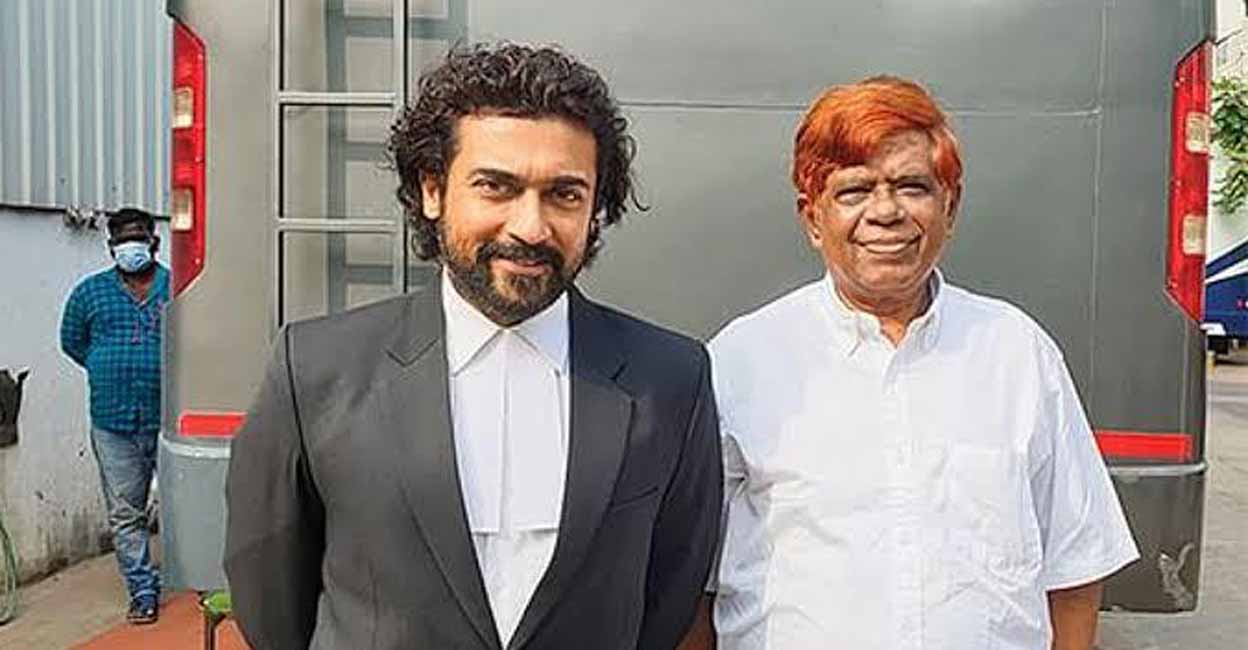
The character in the movie resembling Chandru does not have a good opinion about the police. The police portrayed in the movie were almost synonymous with cruelty. How do you view the real face of the police in Tamil Nadu?
It was not my point of view alone about the police in Tamil Nadu or outside. Various inquiry commissions appointed by the governments have pointed out from time to time that there should be reformation in the police force. Former Chief Minister M Karunanidhi once admitted that the police force in Tamil Nadu suffered much deterioration.
The last scene of the movie shows the resurgence of the children of the slain hero. The scene in which these children are sitting with you reading the newspaper was appreciated by many. Do you have such an intense relationship with children? Did you see these children after winning the court case?
The sympathy and individual attention alone will not bring any substantial changes in society. Individually speaking, I like children the most. I want to see children happy whether I am inside or outside the court. I worked as the president of a school for poor students for four years. I believe that the students of that school made substantial gains during those periods. Some scenes in the movie, involving Suriya's character and the child's character, were taken from life.
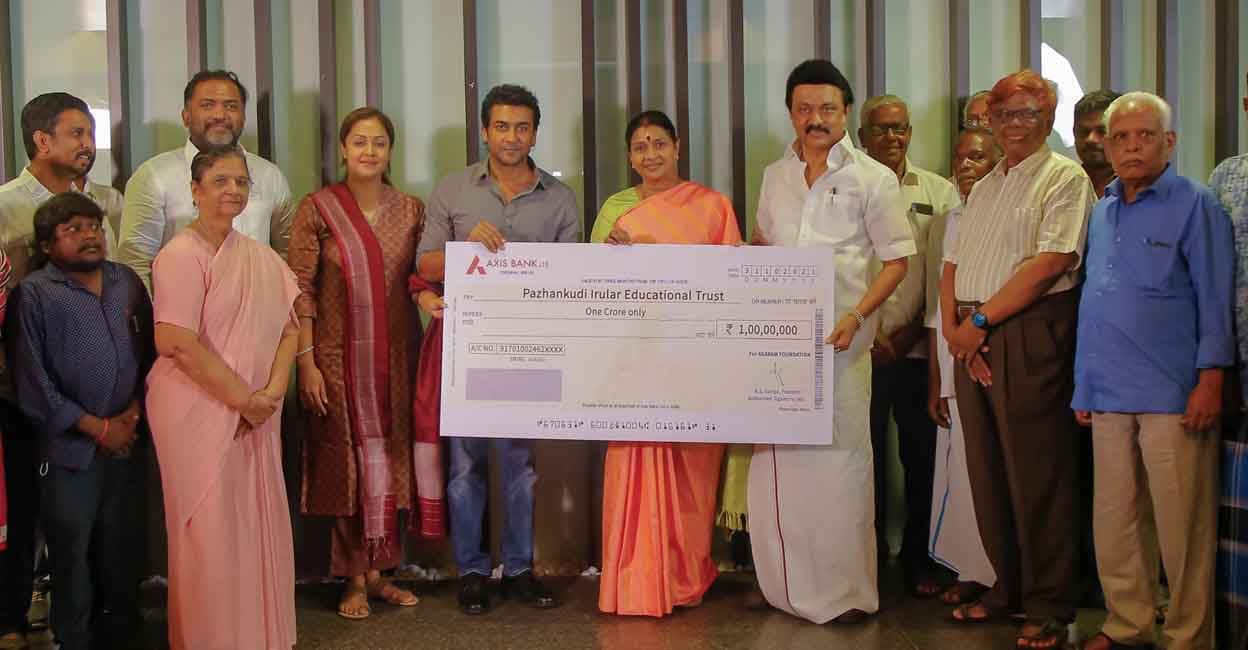
How do you rate the fight of Communist parties against the atrocities committed on the tribal people on caste lines in Tamil Nadu?
The tradition of the Communists parties is to work for the welfare of the tribal people. Nobody can find fault with them for their commitment. The CPM and the CPI have separate political wings in Tamil Nadu to fight against atrocities committed on the basis of caste lines. But there was no organised attempt from any quarters to protect the victims when the particular incident that inspired the film occurred. My meeting with the slain Rajakannu's wife was a turning point as it prompted me to take up the case at any cost and win the legal battle. The judiciary's act of punishing the erring police officers in the case, somehow, reaffirmed to an extent the confidence of people in the judiciary.
Was there any witness in the case from Kerala as was shown in the movie? Did you travel to Kerala in connection with the case?
The two nephews of the slain Rajakannu had migrated to Kerala due to threat from police. They feared a bid on life. So, they went hiding in Kerala. It was very difficult to trace them since they were doing jobs like domestic help at remote places in Kerala. I came to Kerala many times to find them out. But to make the film more attractive, these episodes were given in the movie in a slightly different way.

